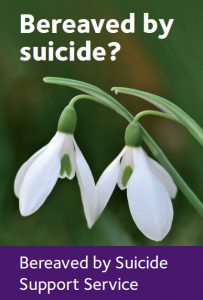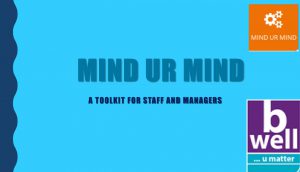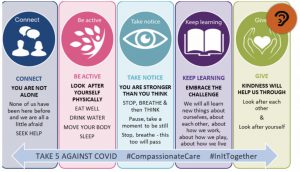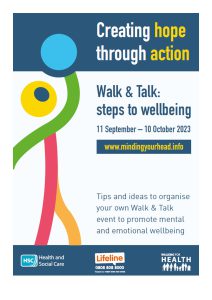
Creating Hope, through Action: Regional Mental Health Campaign 2023
Each year the HSC Trusts and PHA work in partnership to develop a campaign that will encourage people across the region for 4 weeks marking the period between World Suicide Prevention day (10 September) and World Mental Health Day (10 October). This year we are calling on people to ‘Walk & Talk’ to improve their mental health and emotional wellbeing.
Find out More About the Campaign and Get Involved!
Here are a few suggestions of how you can support this year’s campaign:
- Organise a ‘Walk & Talk’ with your a family, friends or colleagues in your workplace. Our campaign pack has hints, tips and posters to help you plan!
- Check out the training booklet to find out about mental health and suicide prevention training courses available
You can find all the information and tools you need to take part in the campaign in the ‘Walk & Talk 2023’ section on www.mindingyourhead.info including our campaign booklet, training booklet, social media posts and information about Walk Leader Training, local walking groups, and walking route which you could follow on your ‘Walk & Talk’.
Together let’s ‘Create Hope, through Action’ throughout Northern Ireland this autumn.
PHA Bereavement By Suicide Services Leaflet
When someone close dies by suicide those left behind have to deal with an overwhelming range of practical and emotional issues.
The Public Health Agency funds a number of organisations to provide a Bereaved by Suicide Support Service.
This is freely available to those living within the Belfast Health & Social Care Trust area.
Looking after your Emotional Health and Well-being
Mental well-being can mean lots of different things, and many factors can influence our well-being but for most of us, it means feeling good about ourselves, our lives and the community around us.
Being mentally healthy – is a state of well- being where we:
- Realise our own abilities
- Can cope with the normal stresses of life
- Are able to form and maintain stable rewarding relationships
- Can work productively and are able to contribute to our community

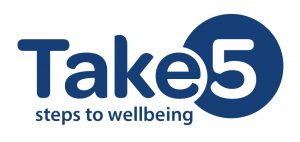
Taking Positive Steps – Sometimes it is the simplest things that can help strengthen our mental health. Use the Take 5 Steps to Wellbeing to look after your mental health. These are five simple steps to help maintain and improve your wellbeing. Try to build these into your daily life – think of them as your ‘five a day’ for wellbeing.
TAKE 5 STEPS
-
CONNECT

Connect with the people around you: family, friends, colleagues and neighbours at home, work, school or in your local community. Think of these relationships as the cornerstones of your life and spend time developing them. Building these connections will support and enrich you every day.
-
BE ACTIVE
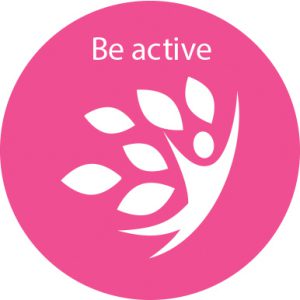
Go for a walk or run, cycle, play a game, garden or dance. Exercising makes you feel good. Most importantly, discover a physical activity that you enjoy; one that suits your level of mobility and fitness. -
TAKE NOTICE
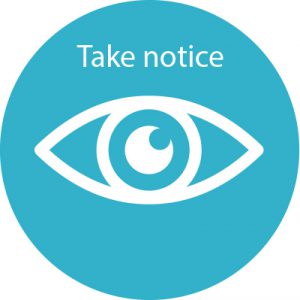
Be observant, look for something beautiful or remark on something unusual. Savour the moment, whether you are on a bus or in a taxi, eating lunch or talking to friends. Be aware of the world around you and what you are feeling. Reflecting on your experiences will help you appreciate what matters to you.
-
KEEP LEARNING
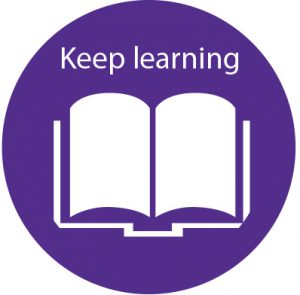
Don’t be afraid to try something new, rediscover an old hobby or sign up for a course. Take on a different responsibility, fix a bike, learn to play an instrument or how to cook your favourite food. Set a challenge you will enjoy. Learning new things will make you more confident, as well as being fun to do.
-
GIVE
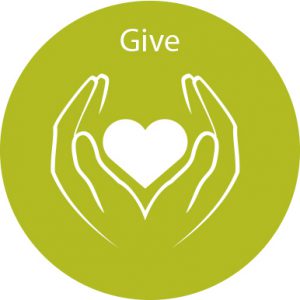
Do something nice for a friend or stranger, thank someone, smile, volunteer your time or consider joining a community group. Look out as well as in. Seeing yourself and your happiness linked to the wider community can be incredibly rewarding and will create connections with the people around you.
WHAT ELSE CAN I DO?
-
EAT WELL
Eat regular healthy meals (at least 3 each day) and drink a lot of water. Cut down on caffeine and sugary foods and remember to eat your 5 portions of fruit and veg a day. Having a balanced diet will not only help the way you feel, but will also help the way you think. Visit the Eat Well section for more information and advice.
-
RELAX
Try to make ‘Me Time’ – time for yourself. Fit things into your day that help you unwind – listening to music, reading, watch a film. Find something you enjoy and that works for you. Even 10 minutes of down time can make a difference to the way you deal with stress, so make sure you take a break.
-
ACCEPT YOURSELF
We are all different, all unique, but none of us perfect. Many different things come together to make us what we are – family, religion, race, gender, sexuality. Feeling good about yourself helps boost your self-esteem and feelings of self-worth – so it’s important to acknowledge who you are, accept who you are not and focus on what you do well. Everyone is entitled to respect including you.
-
ALCOHOL AND OTHER DRUGS
Drinking alcohol to deal with problems is a negative approach – it can cause you to be vulnerable, make decisions you might not otherwise make, lead to dependence and ultimately the original problems will still exist. Alcohol is a depressant and overdoing it can increase anxiety and lead to depression. It is best to drink in a safe way, in moderation and avoid binge drinking. In the same way – using drugs will only cause more problems for you. Visit www.drugsandalcoholni.info for information and support.
SEEK HELP
If you’re struggling with stress, depression or other mental health concerns, seek help. Everyone needs help from time to time. If you were physically sick you might call on the doctor – don’t be embarrassed when it is your mental health you need help and advice with. Asking for help is a sign of personal strength.
Contact your Doctor
Your doctor can help you decide what level of support you need and will be able to refer you to other forms of help.
Services in Belfast
For a list of services which offer support on mental health and emotional wellbeing click here.
Get online
There are a number of great online training programmes and self-help resources on the internet that can offer you advice, help and information. You can explore these options here.
IN A CRISIS
-
CALL LIFELINE on 0808 808 8000
Lifeline is the Northern Ireland crisis response helpline service for people who are experiencing distress or despair. No matter what your age or where you live in Northern Ireland, if you are or someone you know is in distress or despair, Lifeline is here to help.
Deaf and hard of hearing Textphone users can call Lifeline on 18001 0808 808 8000. Calls to Lifeline are free to people living in Northern Ireland who are calling from UK landlines and mobiles. Lifeline counsellors are available 24 hours a day, seven days a week to listen and help, in confidence.
-
CALL A HELPLINE
A number of local and national Helplines are available to support you with issues which might be affecting your mental health. Visit www.helplinesni.com to view the full list of helplines.
Issues covered include:
- Money and Debt
- Parenting
- Support for Carers
- Conditions such as Cancer, Autism and Alzheimer ’s disease.
- Abuse
- Loneliness
- Bereavement
- And many more
STAFFCARE
Each of us, at some stage in our lives, will experience personal or work problems.
Staffcare provides free confidential counselling and support for the staff of Belfast Trust.
You can call the Staffcare Careline at any time, day or night, and speak with a counsellor.
CARELINE 0800 731 3674
For more information please click here



